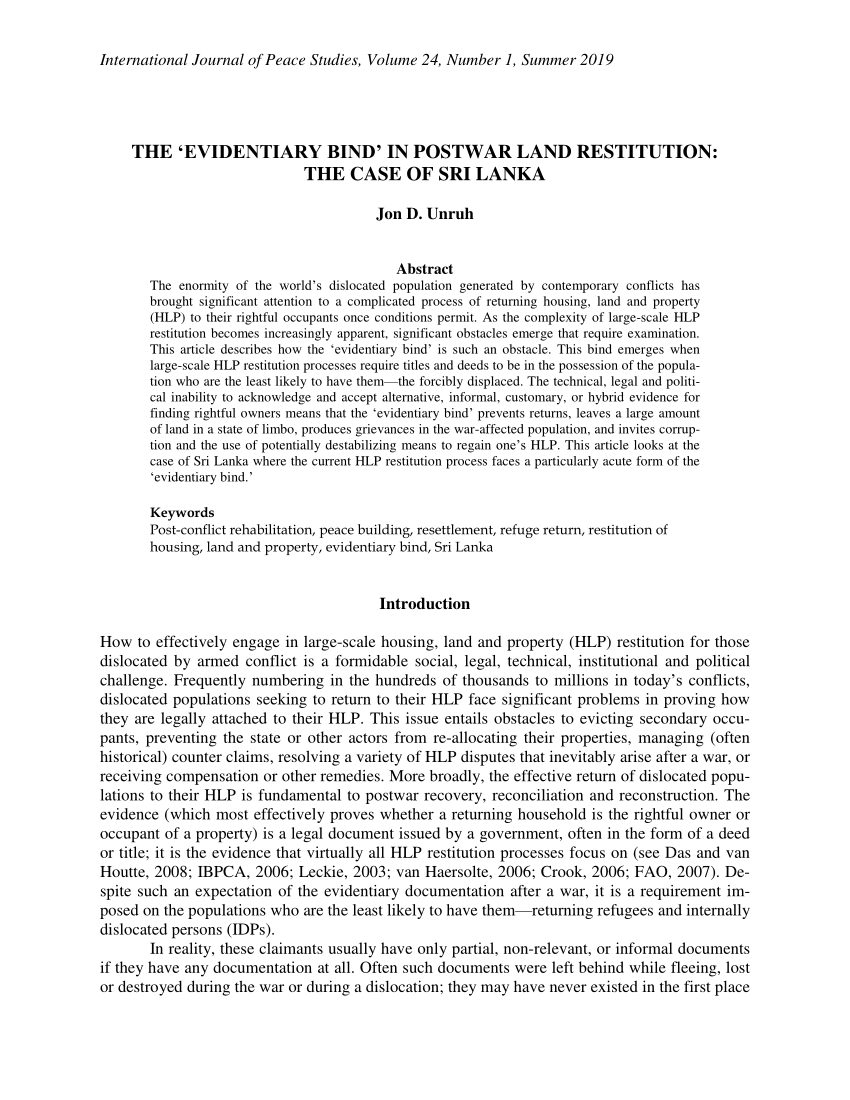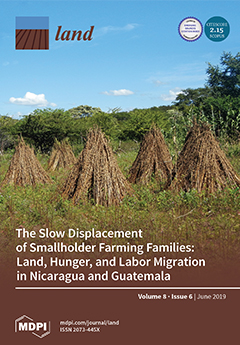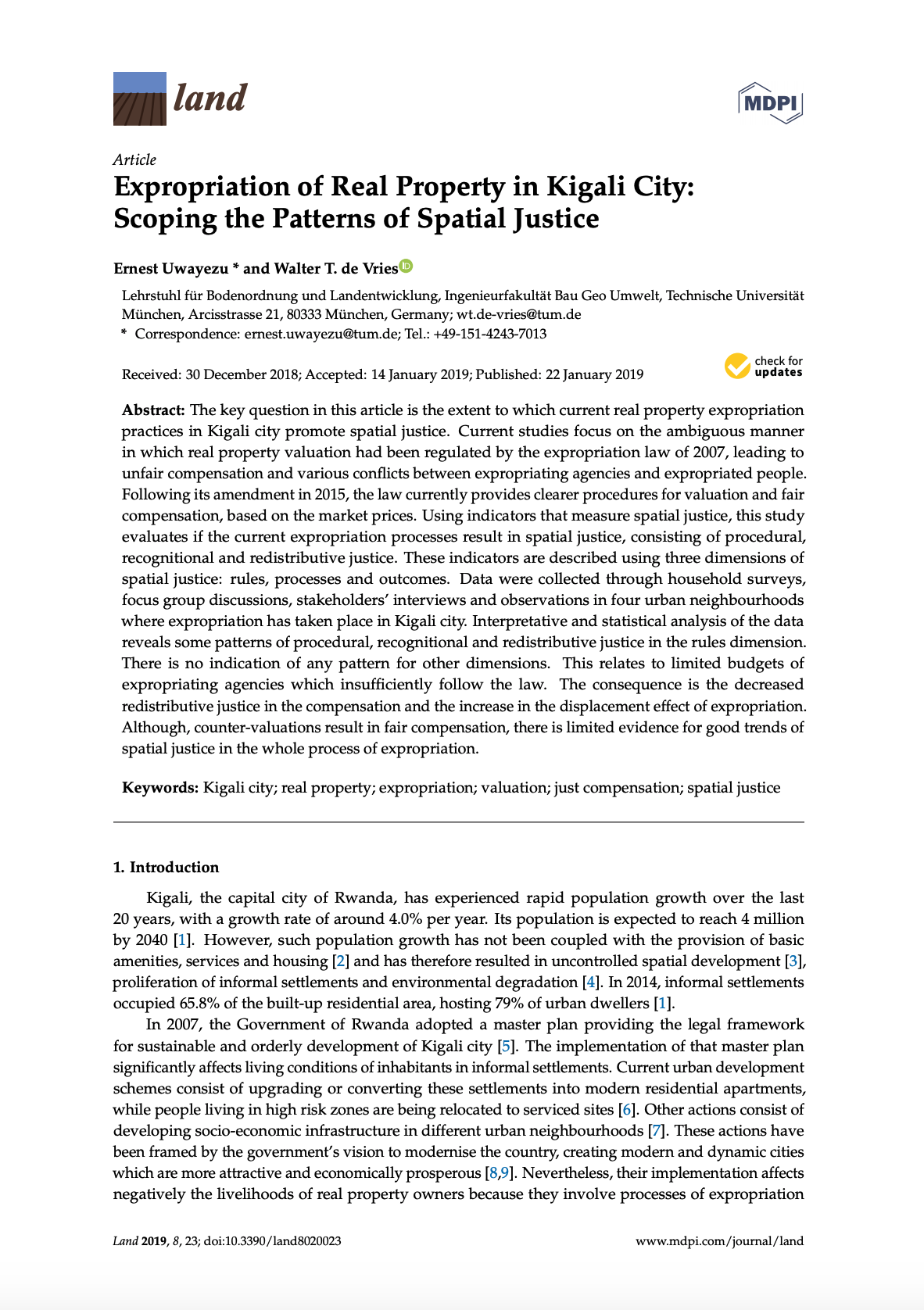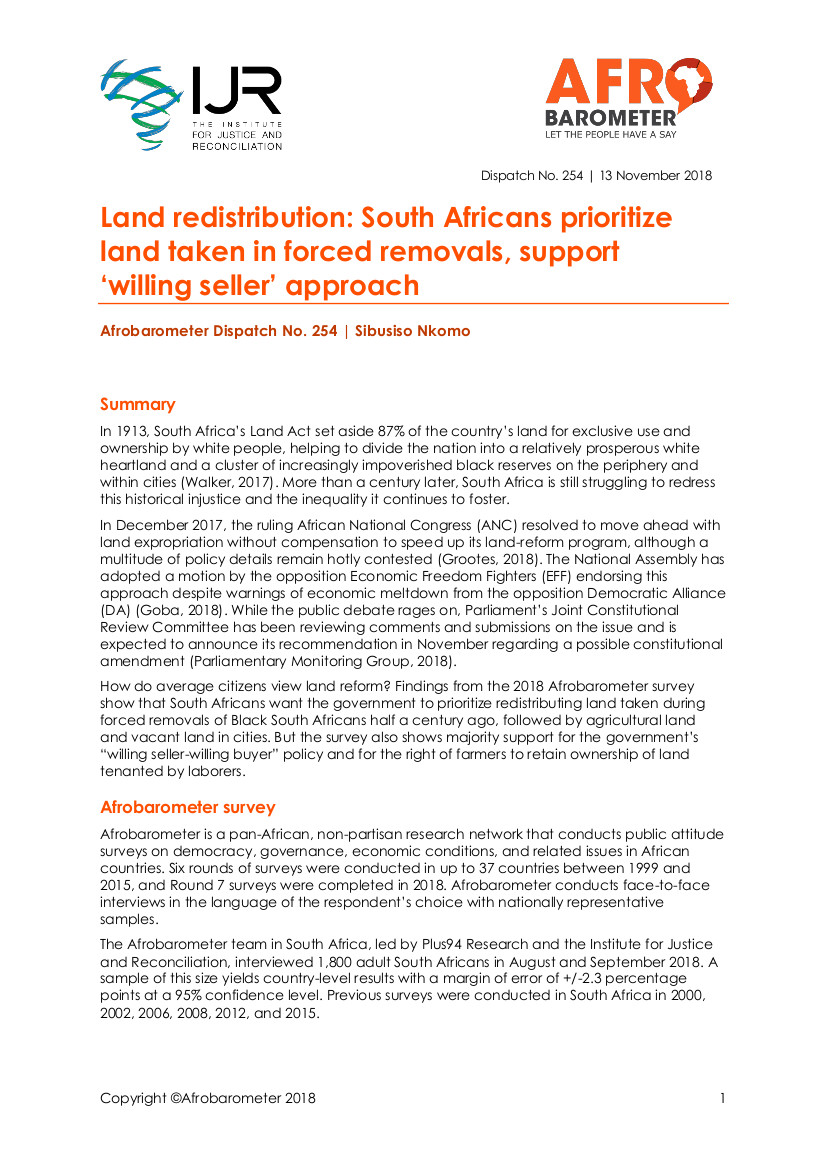The ‘Evidentiary Bind’ in Postwar Land Restitution: The Case of Sri Lanka
The enormity of the world’s dislocated population generated by contemporary conflicts has brought significant attention to a complicated process of returning housing, land and property (HLP) to their rightful occupants once conditions permit. As the complexity of large-scale HLP restitution becomes increasingly apparent, significant obstacles emerge that require examination. This article describes how the ‘evidentiary bind’ is such an obstacle.








